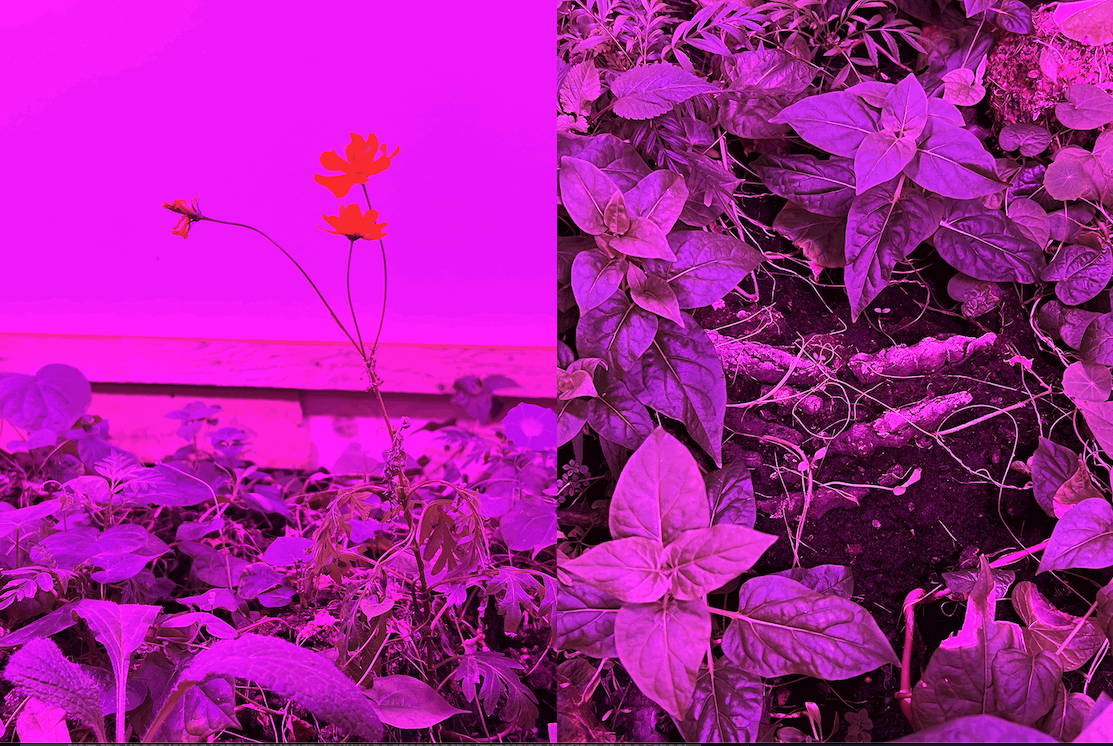Date & time
12:30 p.m. – 5 p.m.
Registration is closed
Registration is closed
This event is free.
J.W. McConnell Building
1400 De Maisonneuve Blvd. W.
4TH SPACE
Yes - See details

Join us for a symposium exploring how queer ecology—and the arts—can reimagine kinship, healing, and ecological belonging in response to intensifying anti-trans, homophobic, and gender-restrictive legislation.
Rooted in queer theory, environmental justice, ecofeminism, ethnobotany and Indigenous knowledge systems, queer ecology offers tools to challenge colonial and heteronormative narratives of nature. This afternoon will include presentations by leading thinkers in the field of Queer Ecology, along with a graduate student-led panel, and roundtable discussion. These interdisciplinary conversations will address speculative botany, queer intimacy, multispecies kinship, and grief.
How can you participate? Join us in person or online starting at 1pm by registering for the Zoom Meeting or watching live on YouTube.
Have questions? Send them to info.4@concordia.ca
Catriona (Cate) Sandilands is Professor in the Faculty of Environmental and Urban Change at York University. Her research and teaching span environmental humanities, ecocriticism, queer, multispecies and feminist ecologies, critical plant studies and botanical biopolitics, public humanities, and creative writing. Sandilands’ pioneering work helped establish queer ecology as a vibrant interdisciplinary field. Among the first scholars to bridge queer theory and environmental studies, her writing includes the edited collection Rising Tides: Reflections for Climate Changing Timesand the co-edited anthology Queer Ecologies: Sex, Nature, Politics, Desire. Her new project Plantasmagoria: Botanical Encounters in the (M)Anthropocene brings together creative nonfiction and critical essays on plant politics, environmental history, human/plant encounters, plant fictions, and everyday botanical relationships as elements of multispecies environmental justice.
Morris Fox is a queer settler-Canadian artist and poet. His creative research explores queer and ecological grief, cruising sites, and the necro-inflected side of camp political-aesthetics—or queer gothic sensibility—through craft, virtual reality, and poetry. He chaired a panel on queer grievance at the 2024 Universities Art Association of Canada conference, and his forthcoming chapter in Home and Craft (Bloomsbury) explores early modern queer floriography. His work has been exhibited across Canada and internationally, including Spring Awaits (Wick Gallery, Minneapolis, 2025), Cruise-ading (Concordia Library, 2024), and bad 2 the bone with QSO (the plumb, Toronto, 2023). His artistic research has been featured in Esse (2025) and tba journal (2024). Fox is a founding member of the queer arts collective Queer Soft Orange (QSO) and an active participant in the Queering Nature Working Group. Fox is a PhD candidate in Interdisciplinary Humanities at Concordia.
Hailey Guzik (they/them) is an interdisciplinary artist based in Tiohtià:ke/Mooniyang/Montreal whose work explores the entanglements between cultural systems, environmental crisis, and queerfeminist technologies. Working across painting, new media, and immersive audiovisual installation, their practice investigates the possibilities of plant-human interaction and speculative worldbuilding as a form of ecological care. Their work has been presented at institutions across Canada, including Fonderie Darling, Confederation Centre Art Gallery, and MUTEK, with support from ArtsNB, the Canada Council for the Arts, and CALQ. Their SSHRC-supported MFA research extends their interest in technoscientific ecologies through a queerfeminist lens.
Abi Hodson (they/them) is a trans transdisciplinary artist based between Tiohtià:ke/Montreal and Kjipuktuk/Halifax. Rooted in collage, video, movement, and textiles, their practice explores the relational nature of bodies—intimate, collective, and more-than-human. Hodson's ongoing research into “creatur-ing” the body involves transforming human limbs through costume, sculpture, and site-responsive video, inviting new, wild forms of kinship between beings, materials, and the lands we inhabit. Guided by sensation, play, and eerie delight, they create participatory spaces for collaboration and community-building, often through zine-making and relational workshops. Hodson’s work invites us to inhabit other ways of being—curious, porous, and creaturely. They are pursuing an MFA in Fibres & Material Practices.
The IQECO is a collaborative organism that seeks to bring peripheral solutions to environmental degradation into public consciousness. Its projects build on queer ecology as a practice concerned with interconnectivity, intimacy, and multispecies relationality. The collective works to overturn destructive human-centric hierarchies by imagining an equitable, multispecies future. IQECO has worked with over 120 artists to present interdisciplinary programming that oscillates between curating exhibitions and directly producing artworks and projects. IQECO was founded in 2017 by Lee Pivnik at the Rhode Island School of Design and is co-directed by Nicolas Baird. Lee Pivnik is a Miami-based artist working in sculpture, video, and social practice. He holds a BFA in Sculpture with a concentration in Nature-Culture-Sustainability Studies from the Rhode Island School of Design. In 2022 he attended the Immersion Program at The School of Architecture in Arcosanti. Nicolas Baird is a biologist, artist, writer, and dancer based in New York City. His scientific research and art practice consider evolutionary relationships between bodies and landscapes, coevolution, and multispecies adaptation. He is a doctoral candidate in Paleobiology.
© Concordia University